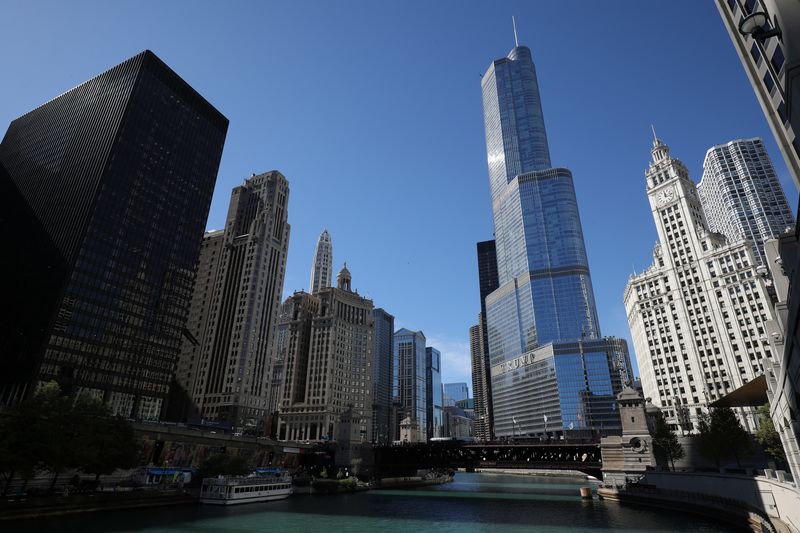By Eric Cox
CHICAGO (Reuters) -Chicago voters on Tuesday appeared to reject a higher real estate transfer tax on properties worth over $1 million, a proposal that proponents said could raise $100 million a year to pay for affordable housing and fight homelessness.
The ballot measure was losing by 8 percentage points with 81% of the vote counted.
Backers of the measure called the results "disappointing" but had yet to concede late Tuesday, saying as many as 100,000 mail-in ballots had yet to be counted. The initiative was trailing by some 23,000 votes with nearly 300,000 ballots in.
"Whatever the final count, one thing is abundantly clear tonight: how determined our opponents are to continue profiting from displacement and inequality," Bring Home Chicago, the main coalition supporting the measure, said in a statement that also criticized how landlords, realtors and developers campaigned against it.
If approved, the initiative would lower property transfer taxes for the vast majority of Chicago residents, to $3 for every $500 of a transfer price under $1 million, down from the current flat rate of $3.75.
It would also create new brackets at the priciest end of the city's property market, including many office buildings filling the Chicago skyline, with a tax rate of $10 for every $500 of the transfer price between $1 million and $1.5 million, and $15 beyond that.
Proponents of the measure in the City Council, led by Democrats, estimated the changes would bring in an additional $100 million each year, which would be set aside for services to address homelessness.
Such a tax structure would bring Chicago in line with San Francisco, Philadelphia and other major U.S. cities, according to Carlos Ramirez-Rosa, the alderman who represents Chicago's 35th ward.
Opponents included landlords and managers of upscale properties.
The Building Owners and Managers Association of Chicago said the initiative would hinder efforts to revitalize office towers downtown, which have struggled to keep tenants in the wake of the COVID-19 pandemic.

More than 68,000 Chicagoans lacked permanent housing at some point in 2021, the latest year for which data was available, according to a report by the Chicago Coalition for the Homeless. Of those, about 44,000 were temporarily staying in other people's homes, leaving 24,000 on the street or in shelters.
With the city also receiving an influx of immigrants, officials began evicting some foreigners from homeless shelters on Sunday.